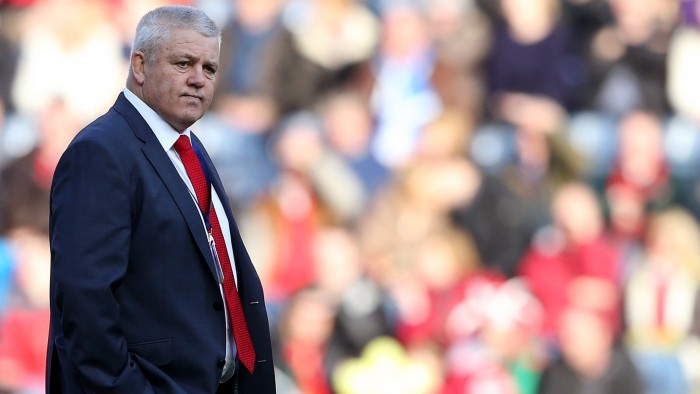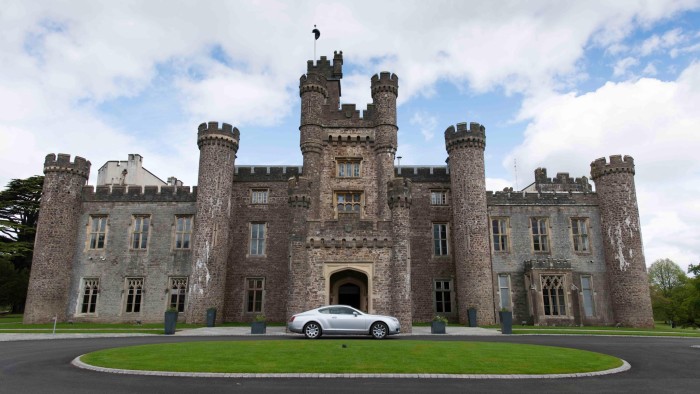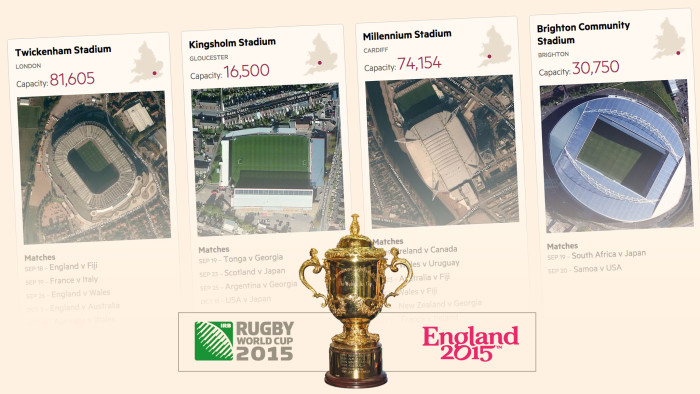Welsh coach Warren Gatland looks at the evolution of rugby

Roula Khalaf, Editor of the FT, selects her favourite stories in this weekly newsletter.
Things were clearer when the teams stayed out on the pitch at half time. Motivation and strategy were there for all to see: it involved oranges and waved fists.
The decision to allow the teams to go back to the dressing room was taken by the governing International Rugby Board in 1995, as the sport moved in to the professional era. It was a turning point in the image of the rugby head coach, and today men such as Warren Gatland, the Wales head coach, Stuart Lancaster of England, Graham Henry of New Zealand and Heyneke Meyer of South Africa, enjoy a media profile beyond that of most of the players.
The tracksuit has been replaced by something altogether more businesslike and similarly the language is peppered with phrases from the boardroom and the marketing industry.
Players are “empowered” and expected to buy in to mission statements and codes of conduct. The coach might eschew the dugout and be seen watching the match from behind glass screens in the stands. Teams of subordinates near him pore over performance data in real time.
This is rugby’s knowledge economy. The players inhabit the role of hardworking artisans and await instruction from the all-seeing intelligence in the stands.
Wales’ Gatland is one of the most admired coaches of his generation, with a hugely impressive CV as coach at club and international level, including two tours with the British and Irish Lions.
He became Wales coach in 2007 and was recently rewarded for the team’s results with a new contract that runs to the end of the 2019 Rugby World Cup. If completed, this will make Gatland the longest serving international coach in the professional era.
It is a tenure in which Gatland, the former front row forward from Waikato, New Zealand, has transformed the coaching environment throughout the Welsh Rugby Union governing body.
He oversees a fully up-to-date training facility at the Vale Resort, near Cardiff. This “centre of excellence” boasts pitches that match the dimensions of that at the Millennium Stadium, the team’s home turf.

The centre has recently added a cryotherapy unit in response to Gatland’s enthusiasm for the process. Cryotherapy aids the release of endorphins triggered by exposure to temperatures as low as -160°C. This is claimed to quicken the players rate of physical recovery, allowing them to train harder and overcome injury more effectively. Rather than apply an ice pack to sore areas of their bodies, players enter a cryotherapy chamber for a two- to four-minute session.
“In the modern game there has to be a focus on detail as we aim to give the team every possible advantage over all opponents,” says Gatland.
The FT’s guide to the 2015 Rugby World Cup

The big men are back. The world’s best 620 players (minus the infirm and overlooked) have assembled across England and Wales to contest the eighth world championship. View our interactive guide.
Read more
“We have world-class individuals managing all the disciplines,” he adds. His backroom team includes specialist coaches Shaun Edwards (defence), Rob Howley (attack), Neil Jenkins (kicking) and analyst Adam Beard, each of whom were part of the British and Irish Lions staff.
“The environment has to continually evolve to embrace all the available advances in game analysis, conditioning, nutrition, rugby skills and medical care,” argues Gatland, “along with a constant reflection on how the elite game is changing and how we must respond to those developments”.
The Welsh squad has recently been in training camps in areas as diverse as the Swiss mountains, as well as Doha in the Gulf. The players, he says, “have to be willing to embrace the environment and the opportunities we create to improve and develop them”.
Gatland’s management philosophy devolves greater responsibility to the senior players, who are encouraged to create their own team norms of behaviour, such as pre-match curfews and other disciplinary issues.
By passing these responsibilities on to captain Sam Warburton and senior squad members such as Jamie Roberts, Dan Lydiate and Gethin Jenkins, Gatland says the players have greater “ownership” over strategy and tactics.
“There is a lot of external pressure on elite sport and we work hard to protect all the individuals within our squad to give them the confidence to focus on the rugby,” he says.
At the same time, Wales’ version of the modern super-coach appears fully aware of the importance of a work-life balance: “Underpinning the immense amount of hard work, there has to be a recognition that normal life exists outside the environment we create,” says Gatland.
“So I set a great deal of importance on the players’ families and life outside the squad.”
Comments